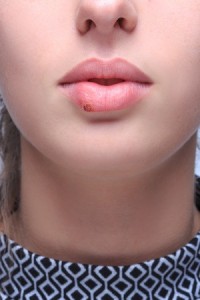 The name “cold sore” is a bit of a misnomer as there’s nothing ‘cold’ about it. First of all, the condition is caused by the herpes simplex virus (HSV), not the common cold. Second, cold sores have a tendency to appear more in the summer, as increased sun exposure can reactivate the virus. Last, but not least, cold sores are often accompanied by a burning sensation.
The name “cold sore” is a bit of a misnomer as there’s nothing ‘cold’ about it. First of all, the condition is caused by the herpes simplex virus (HSV), not the common cold. Second, cold sores have a tendency to appear more in the summer, as increased sun exposure can reactivate the virus. Last, but not least, cold sores are often accompanied by a burning sensation.
Cold Sore Triggers and Treatment
HSV spends most of its time inactive, until a trigger brings it out of hiding. Common cold sore triggers include stress, fatigue, fever, hormones, and as mentioned above, sunlight.
There is no cure for cold sores and HSV, but you can alleviate the symptoms and shorten the duration with certain treatments—especially if they are used at the first sign of an outbreak. Over-the-counter cold sore remedies mostly contain numbing agents such as menthol and phenol for pain relief. Some of these treatments, such as Abreva®, contain anti-viral ingredients to help shorten the duration of the cold sore.
For more irritating cases, your dermatologist can prescribe an oral anti-viral cold sore medication to speed healing such as acyclovir, famciclovir or valacyclovir. Newly available in Canada is Xerese®, a recently approved topical prescription treatment that combines two medications: acyclovir (an anti-viral) with hydrocortisone (an anti-inflammatory). By combining these agents, it reduces the development of sores and speeds the healing of lesions. To learn more about Xerese, view the video below with Dr. Jason Rivers.
No matter which cold sore medication is chosen in consultation with your dermatologist, treatment is most effective when started at the first sign of an outbreak.